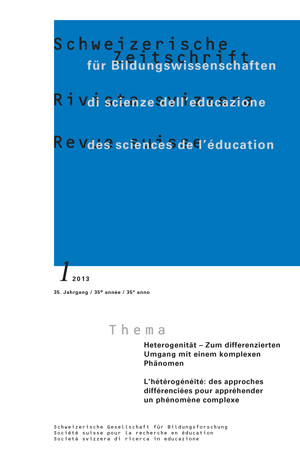The structural, organizational and cognitive challenges of student diversity management in education systems
DOI:
https://doi.org/10.24452/sjer.35.1.4904Keywords:
Heterogeneity, inequalities, orientation, segregation, educational systemsAbstract
This paper focuses on different ways of identifying and addressing the issue of student heterogeneity in educational systems. It convenes well-established research results that illustrate how the institutional regrouping of vulnerable students in specific or special groups (whether in classes, streams, tracks, options, etc.) almost always is accompanied by an increase in the differences between these particular students and others, notably through a process of alignment of educational expectations to the features of the group. But the management of pupil heterogeneity does not solely rely on structural choices made primarily at the level of educational systems. The analysis of orientation processes of students toward special education classes and schools in the Swiss cantons, presented in the second part of this paper, makes it possible to illustrate how differences in the management of education systems is also based on cognitive categories mobilized by actors and on organizational realities, which then affect orientation processes of students in a significant and continuous manner.
Downloads
Downloads
Published
Issue
Section
License
Copyright (c) 2013 Farah Dubois-Shaik, Vincent Dupriez

This work is licensed under a Creative Commons Attribution 4.0 International License.



